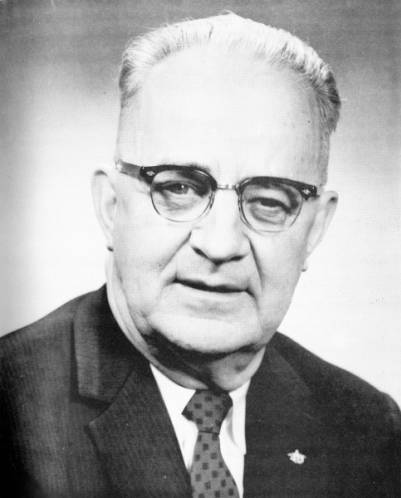Bull Connor
Bull Connor is remembered for his opposition to the Civil Rights Movement during his time as Commissioner of Public Safety in Birmingham, Alabama. His aggressive policies towards black protesters epitomised the institutionalised racism that plagued the South.
Born on 11 July 1897, Theophilus ‘Bull’ Connor’ grew up in the city of Selma in Alabama. Racism was rife in Alabama, and Jim Crow laws governed the treatment of African Americans. Lynching was used as a method of informal law enforcement and the police notoriously turned a blind eye to many racial crimes.

Connor’s childhood was unsettled. His mother died when he was just eight-years-old, and his father moved across America for his job as a railroad engineer. Connor schooling was non-existent, but his father did teach him how to read telegraph ticker reports - a skill that kept him employed in the early radio stations. On his return to Birmingham, Connor turned to sports broadcasting. The local publicity from this job proved useful when he tried to enter politics.
Connor became Commissioner of Public Safety in Birmingham in 1937 - a position he held until 1961. His popularity was partly derived from his support of segregation. He ensured that it was well enforced, regardless of federal legislation such Brown v Tepeka, or the end of segregation on buses after the Montgomery Boycott.
However, by 1963 the civil rights movement had reached Birmingham. Martin Luther King organised a civil rights march in the city. The public and officials greeted this civil rights activity with hostility.
Connor interpreted the King’s actions as a challenge to his authority. Demonstrators faced police dogs and high-pressure hoses. The images of peaceful protesters being attacked by the police had the potential to spark outrage across nation, however, many African Africans had avoided the march in fear of Connor. They knew that when the King left they would have to face his punishment.
Many of those who attended the march were brought in from different towns and, to make up numbers, King invited children to the demonstrations. However, the images of children being attacked proved to be even more effective and did more to harm Connor’s reputation.
Connor’s intolerant racism concerned some of those in Birmingham’s hierarchy. They felt that his approach was reflective of Southern racism. In 1963, Connor was ousted from power and in 1964 the Supreme Court upheld this decision. Connor’s actions had done much to blemish the reputation of Birmingham and many of the city’s businessmen worried that they would lose outside investment.
Connor managed to reclaim some form of power within the city. In 1964, he ran for President of the Alabama Public Service Commission. In 1964, he won a four-year term before being re-elected in 1968. However, he lost his re-election battle in 1972 and retired shortly afterwards. He died on 10 March 1973.
See also: 1963 Birmingham Church Bombing
MLA Citation/Reference
"Bull Connor". HistoryLearning.com. 2025. Web.
Key facts
| Name: | Bull Connor |
| Birth Date: | 11 July 1897, Selma, Alabama |
| Death: | 10 March 1973, |
| Occupation: | Commissioner of Public Safety |
| Known for: | Opposed civil rights movements; used violence against the nonviolent protestors in Birmingham |
